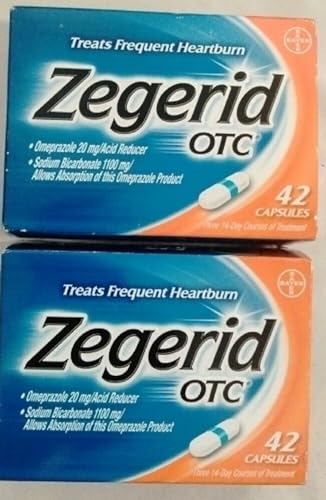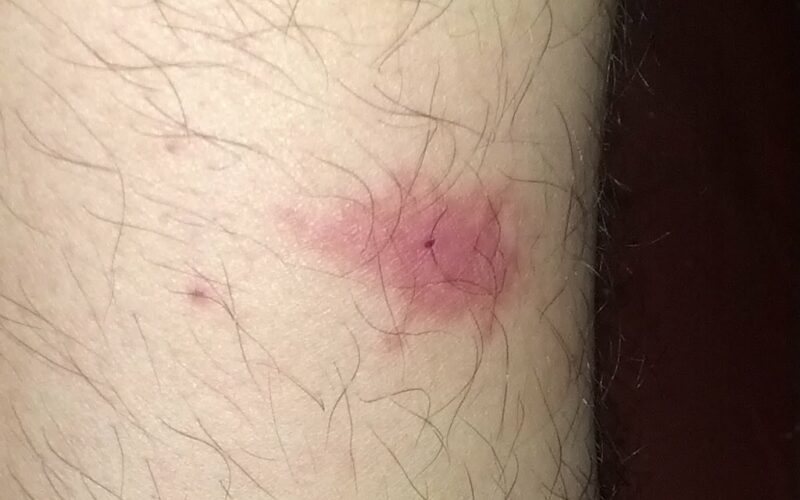Omeprazole, a proton pump inhibitor (PPI), is commonly prescribed for conditions like excess stomach acid, gastric ulcers, gastroesophageal reflux disease (GERD), and Zollinger-Ellison syndrome. It works by inhibiting the proton pump enzyme in the stomach lining, reducing the production of stomach acid. By decreasing the acidity in the stomach, Omeprazole aids in the healing of acid-related damage to the esophagus and prevents the formation of ulcers.
Prilosec
The brand name for Omeprazole is Prilosec OTC, produced by AstraZeneca. It is available in original and wildberry flavors. Prilosec OTC is indicated for the treatment of mild cases of excess stomach acid, GERD, and gastric ulcers. If you have any stomach acid-related health issues, it is recommended to consult a doctor or pharmacist for more detailed information and proper usage guidance.
Wildberry Flavor | 42 tablets
Omeprazole 20mg (Acid Suppressor)
Also available at Walmart
AstraZeneca is a leading global pharmaceutical company headquartered in London, United Kingdom. It was formed by the merger of the Swedish company Astra and the British company Zeneca in 1999.
Zegerid
Omeprazole is also available as an over-the-counter combination medication called Zegerid OTC, which contains Omeprazole and sodium bicarbonate. Sodium bicarbonate is an antacid that quickly neutralizes stomach acid, while Omeprazole works to inhibit acid production over a longer period.
42 tablets x 2 boxes
Omeprazole 20mg (Acid Suppressor)
Sodium Bicarbonate 1100mg (Acid Neutralizer)
Also available at Walmart
Zegerid OTC is used to treat duodenal ulcers, gastric ulcers, and erosive esophagitis in adults. As a branded medication, Zegerid is manufactured by Bayer. It offers a convenient treatment option by combining Omeprazole and sodium bicarbonate to achieve acid control.
Usage
Please read the label carefully before taking the medication. It is typically taken orally once a day before a meal. The dosage and duration of treatment depend on the condition and response to therapy. In children, the dosage should also consider their weight. Do not increase the dosage or take it frequently without proper guidance. To achieve maximum effectiveness, take the medication regularly at a fixed time every day. Even if the symptoms improve, continue taking it until the prescribed course of treatment is completed.
When taking delayed-release tablets, do not crush, chew, or break them to avoid increased side effects. If using orally disintegrating tablets, take them with dry hands and allow them to dissolve on the tongue, then swallow with water if needed.
If necessary, it can be taken together with antacids. If using sucralfate, take Omeprazole 30 minutes before it.
When purchasing over-the-counter medication, unless directed by a doctor, do not exceed a 14-day course. Prolonged use increases the risk of side effects.
If there is no improvement after taking the medication or if heartburn symptoms persist after continuous use for 14 days, or if it needs to be used multiple times within 4 months, seek medical advice promptly.
Side Effects
Omeprazole is generally safe, and most people experience little to no side effects or only mild ones. Mild side effects may include headache or abdominal pain, while severe side effects can include muscle spasms, irregular heartbeat, seizures, or lupus erythematosus.
Omeprazole may also trigger gastrointestinal infections caused by C. difficile bacteria. If you experience persistent diarrhea, abdominal pain, or bloody stools after taking the medication, do not use anti-diarrheal products and seek medical attention immediately.
Long-term use may lead to vitamin B12 deficiency. If you experience unusual weakness, tongue pain, or tingling sensations in the hands or feet, seek medical attention promptly.
The likelihood of severe allergic reactions is low. However, if you experience fever, swollen lymph nodes, rash, difficulty breathing, or changes in urine output, seek immediate medical attention. If you are allergic to similar medications such as esomeprazole, lansoprazole, or pantoprazole, there is a high probability of an allergic reaction to omeprazole as well.
Risk Groups
Certain symptoms may indicate more serious issues. If you experience the following symptoms, seek medical attention immediately rather than self-medicating:
- Heartburn accompanied by dizziness, sweating, or lightheadedness
- Chest, jaw, arm, or shoulder pain
- Shortness of breath or abnormal sweating
- Unexplained weight loss
Children are more sensitive to this medication. Consult a doctor or pharmacist before giving it to children.
Pregnant women should use it only when necessary, and it should be avoided during the later stages of pregnancy. If this medication is needed during pregnancy or while breastfeeding, consult a doctor first.
Disclosure: We are an Amazon Associate. Some links on this website are affiliate links, which means we may earn a commission or receive a referral fee when you sign up or make a purchase through those links.














Leave a Reply